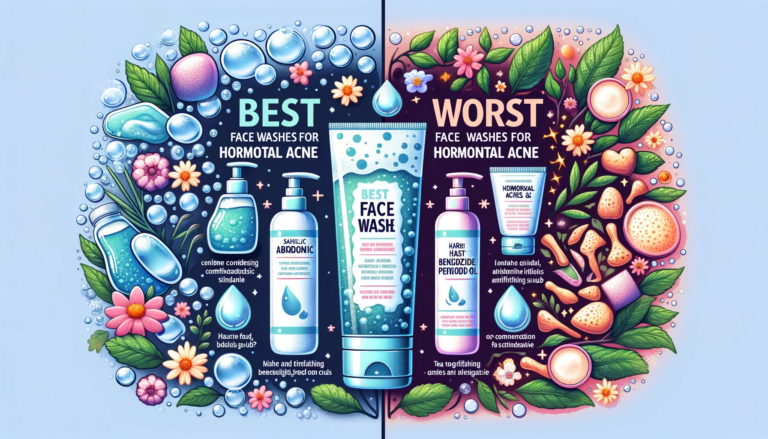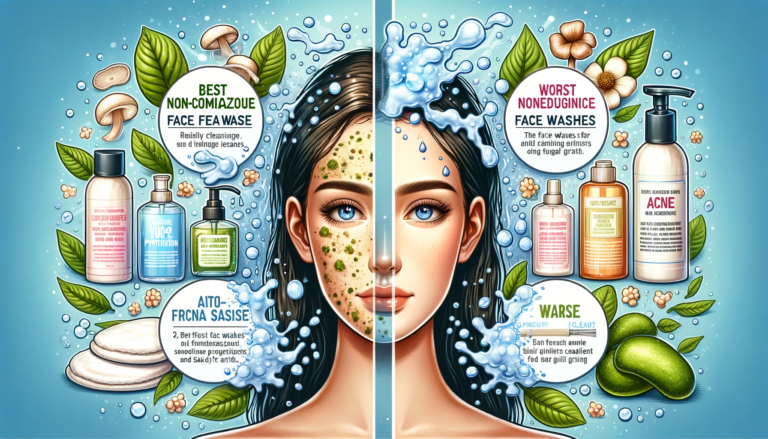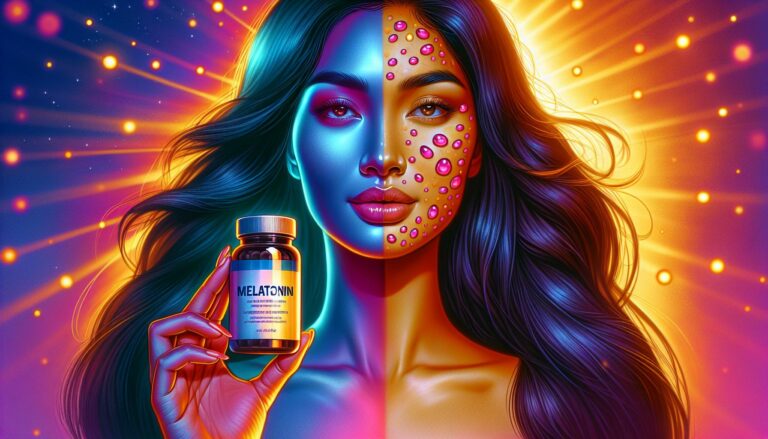Plant-Based Diets for Clear Skin
Embarking on a plant-based diet could be a pivotal step in your journey towards clearer skin, especially if you’re grappling with acne.
This comprehensive guide delves into the intricate relationship between a plant-based lifestyle and acne, shedding light on how making a dietary shift might just be the solution you’ve been seeking for your skin woes.
Well, we’ll be going over:
- How does the food you consume directly impact your skin’s health, particularly concerning acne?
- What exactly constitutes a plant-based diet, and how can transitioning to this way of eating benefit your skin?
- What are the potential downsides of consuming animal products when it comes to managing acne?
Let’s dive in.

The Relationship Between Diet and Acne
Exploring the link between what you eat and your skin’s health might reveal surprising insights. It’s widely acknowledged that diet plays a crucial role in acne development. Foods high in sugar and dairy can exacerbate skin conditions, leading to increased breakouts. On the flip side, a plant-based diet, rich in vegetables, fruits, nuts, and seeds, introduces vital nutrients and antioxidants that combat inflammation and improve overall skin clarity.
A pivotal aspect of understanding this connection hinges on recognizing how high-glycemic foods trigger hormonal fluctuations, promoting oil production and clogging pores. Opting for low-glycemic alternatives, primarily found in plant-based foods, helps stabilize these hormonal swings, thereby reducing acne outbreaks.
Moreover, dairy products often contain hormones that can mimic androgens in the body, further aggravating acne. Removing dairy from your diet and embracing plant-based alternatives can lead to noticeable improvements in your skin’s condition.
Understanding Plant-Based Diets
Embarking on a plant-based journey means you’re choosing to fuel your body primarily with plants. This approach includes fruits, vegetables, nuts, seeds, oils, whole grains, legumes, and beans. It’s not just about eliminating animal products but embracing a diet filled with whole, minimally processed foods.
Transitioning to a plant-based diet doesn’t have to be all or nothing. You might start by incorporating more plant-based meals into your week or opting for plant-based alternatives to your favorite dairy and meat products. The key is to find a balance that feels sustainable and enjoyable for you.
Remember, a plant-based diet isn’t just about what you’re avoiding; it’s rich in nutrients essential for skin health. Vitamins, minerals, and antioxidants in plant foods can help combat inflammation and promote clearer, more radiant skin. By nourishing your body with these nutrients, you’re taking a crucial step towards reducing acne and enhancing your overall health.
The Impact of Animal Products on Acne
When you dive into the relationship between your diet and skin health, one critical aspect to explore is how animal products influence acne. The consumption of animal-derived foods, especially dairy, has been closely linked with acne prevalence. Dairy products can increase insulin levels and trigger insulin-like growth factor 1 (IGF-1), promoting sebum production and contributing to the development of acne. High levels of hormones found in milk and other dairy products can also exacerbate hormone-related acne by imbalancing your body’s natural hormonal equilibrium.
Moreover, meats and processed foods high in fats and sugars can intensify inflammation throughout the body, including the skin. This inflammation can worsen acne conditions, making it harder for your skin to heal. On the other hand, plant-based diets tend to be anti-inflammatory, thanks to their high content of antioxidants, vitamins, and minerals, which can mitigate acne symptoms and promote clearer skin.
Switching to a plant-based diet and reducing your intake of animal products could be a game-changer for your skin health. Incorporating more fruits, vegetables, nuts, and seeds can introduce essential nutrients that combat inflammation and support skin clarity.
Benefits of Plant-Based Nutrition for Acne
Adopting a plant-based diet does wonders for your skin, especially if you’re battling acne. The cornerstone of this diet—fruits, vegetables, nuts, and seeds—is loaded with antioxidants, vitamins, and minerals, all essential for skin repair and clarity. Antioxidants combat free radicals, protecting skin cells from damage and premature aging.
A significant advantage of plant-based nutrition is its low glycemic index. Foods that spike your blood sugar lead to increased insulin levels, which in turn can ramp up sebum production and worsen acne. By favoring low-glycemic foods typical of a plant-based diet, you’re less likely to experience these drastic insulin spikes, thereby reducing your risk of breakouts.
Moreover, eliminating dairy and reducing processed foods minimize your intake of hormones and additives that can aggravate acne. Dairy, in particular, is notorious for containing hormones that may stimulate oil glands in the skin, leading to increased acne prevalence.
By focusing on plant-based foods, you’re not just avoiding triggers; you’re actively nourishing your body with what it needs to fight inflammation and improve skin health.
Transitioning to a Plant-Based Diet
Embracing a plant-based diet can be a game-changer for your skin and overall health. If you’re considering this shift, start with small, manageable steps. Begin by incorporating more fruits, vegetables, and whole grains into your meals. These foods are packed with the nutrients vital for acne-free skin.
Meal planning plays a crucial role in a successful transition. Dedicate time each week to plan your meals, ensuring you include a variety of plant-based foods. Experiment with new recipes to discover your favorites and keep your diet exciting.
At the grocery store, focus on buying fresh produce and minimally processed foods. Reading labels is essential to avoid products with hidden animal derivatives or excessive additives.
Gradually reduce your intake of animal products instead of going cold turkey. For example, you might start by having meatless Mondays, progressively adding more plant-based days each week until you’re fully immersed in your new dietary lifestyle.
Remember, transitioning to a plant-based diet is a journey, not a race. Listen to your body and adjust your food choices as needed to ensure you’re meeting all your nutritional requirements.
Conclusion
Embracing a plant-based diet could be your key to clearer, healthier skin. With its rich array of antioxidants, vitamins, and minerals, you’re not just addressing acne; you’re investing in your overall skin health.
Remember, it’s about making informed choices—increasing fruits, vegetables, and whole grains while cutting back on dairy and processed foods. As you embark on this journey, keep in mind it’s about progress, not perfection.
Listen to your body, adjust as necessary, and you’ll find a balance that not only benefits your skin but enhances your health in ways you might not have imagined.






